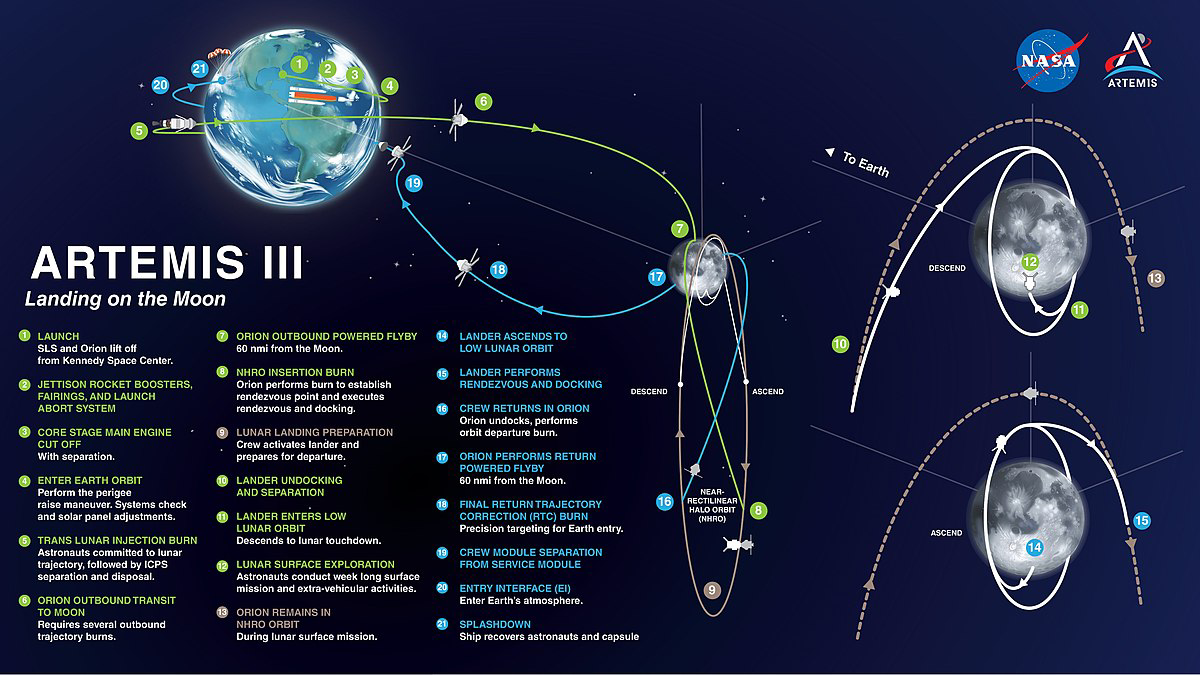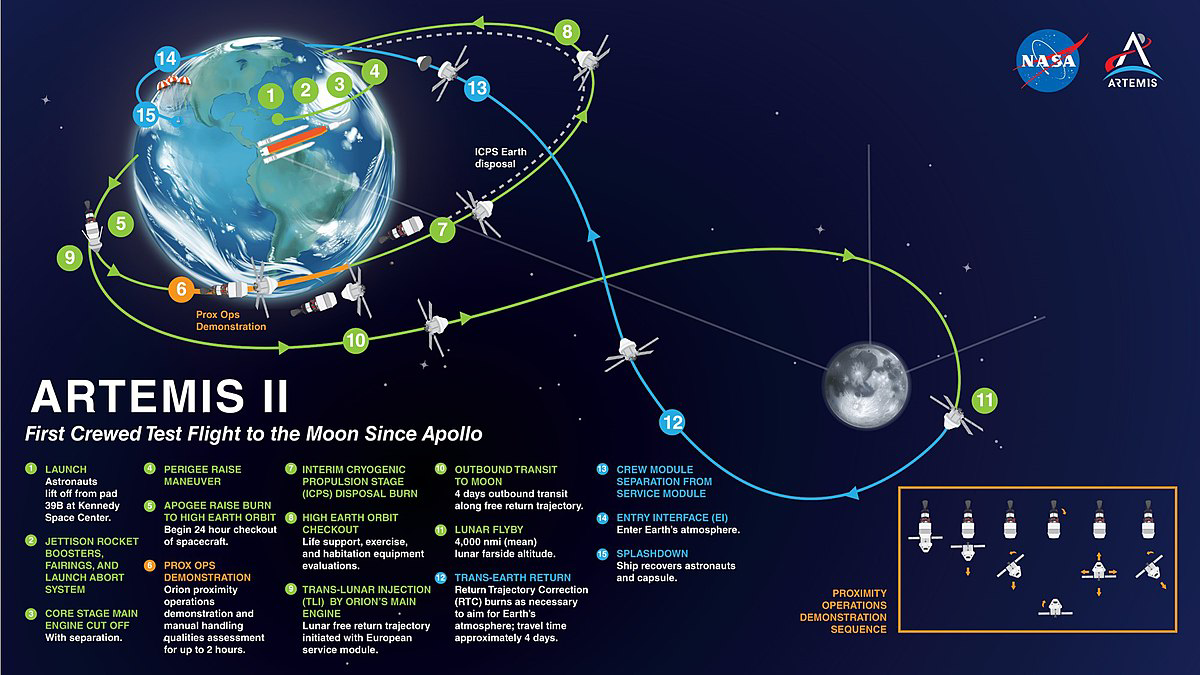
People are also trading
Some other missions (besides Artemis) that could possibly be relevant to this market:
- A "DearMoon" manned Starship tourism mission around the moon, which would use a free-return trajectory similar to Apollo 13, thus potentially beating the record. If Starship works and doesn't fall too badly behind schedule (Artemis 3 in 2027 or 2028?), it seems plausible that one or two moon-tourism flyby missions could also launch before 2030.
- A Chinese moon mission (they are only on track to land on the moon sometime after 2030, but they might manage some Apollo 8 / Artemis 2 demo flights beforehand), although it's unlikely IMO that they would choose such a distant orbit since they aren't trying to build a Lunar Gateway or anything.
- Obviously any kind of manned mars mission would beat this record, although this seems unlikely before 2030.
This is essentially guaranteed to occur as long as any manned Artemis mission happens before 2030: https://blogs.nasa.gov/artemis/2022/11/26/artemis-i-flight-day-11-orion-surpasses-apollo-13-record-distance-from-earth/#:~:text=26.,28.
"Orion surpassed the distance record for a mission with a spacecraft designed to carry humans to deep space and back to Earth, at 7:42 a.m. Saturday, Nov. 26. The record was set during the Apollo 13 mission at 248,655 miles from our home planet. At its maximum distance from the Moon, Orion will be more than 270,000 miles from Earth Monday, Nov. 28."
@JacksonWagner Orion for Artemis 1 went to a distant retrograde orbit. Orion for Artemis 2 won't do that, so it's not obvious to me that it will go further out than Apollo 13. I _think_ Artemis 2 will win out, but it's not so clear cut as you would think.
Artemis 3 is going to NRHO, which is different once again since the furthest point from the moon will not be behind the moon. It will probably still be the furthest anyone has been from Earth though.


